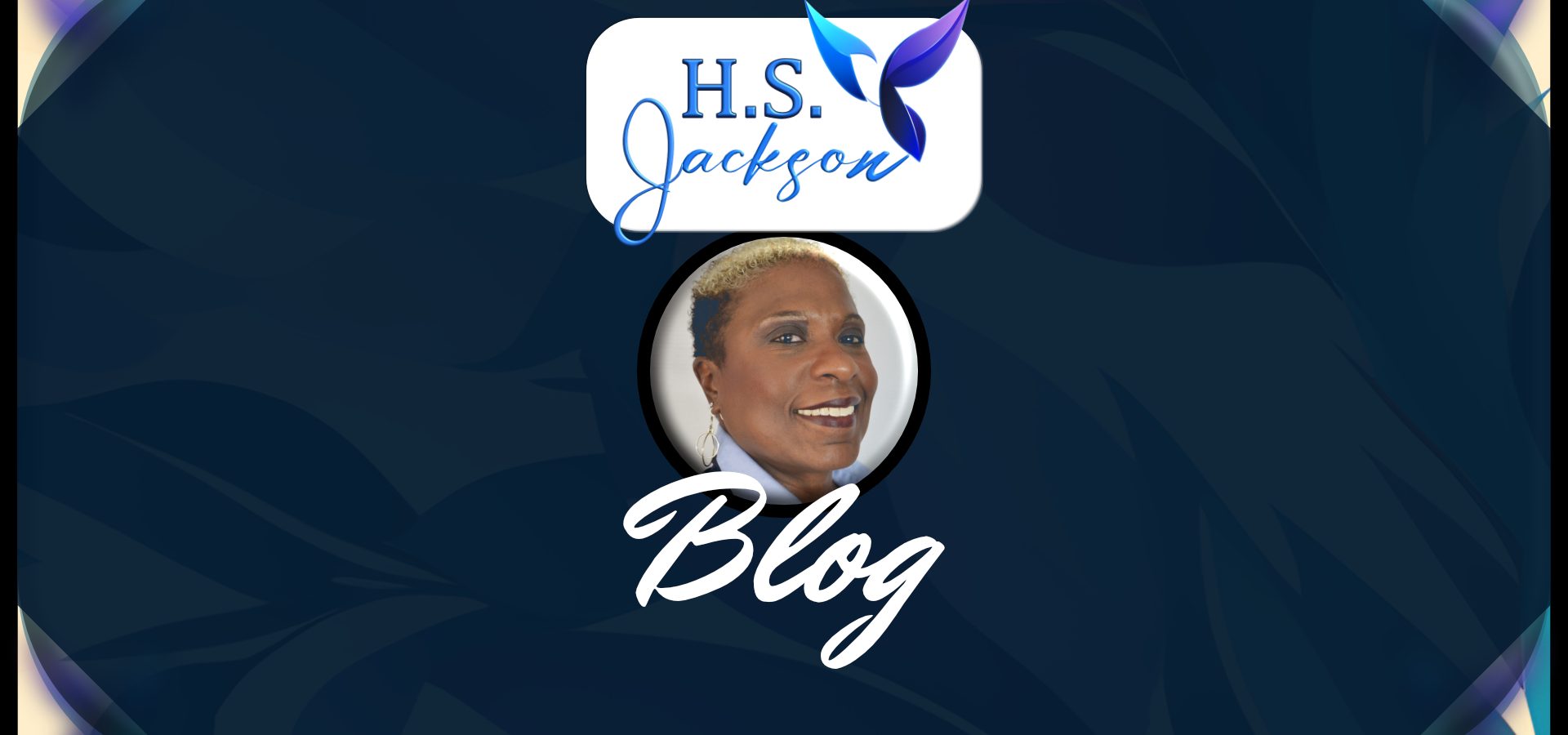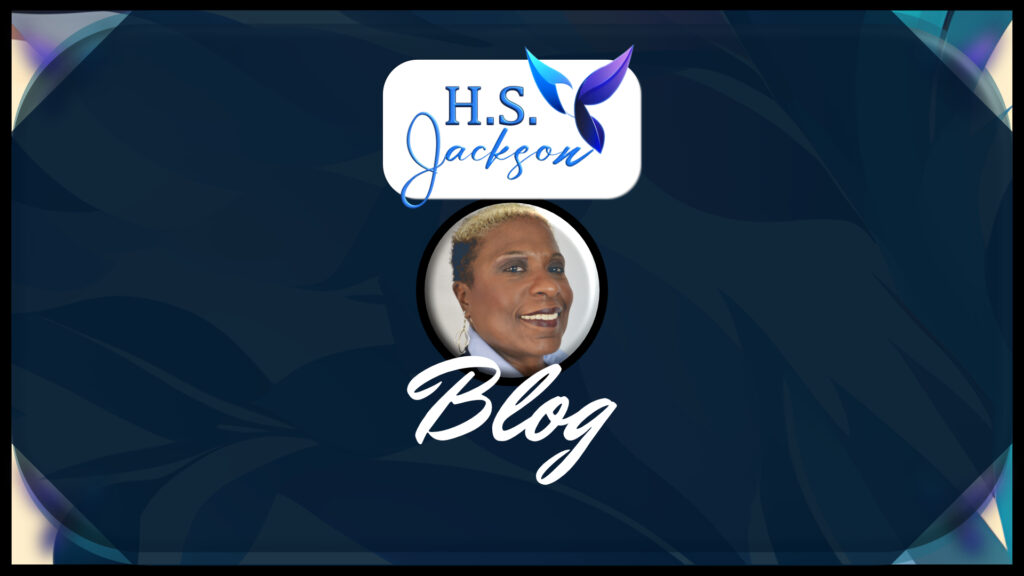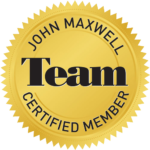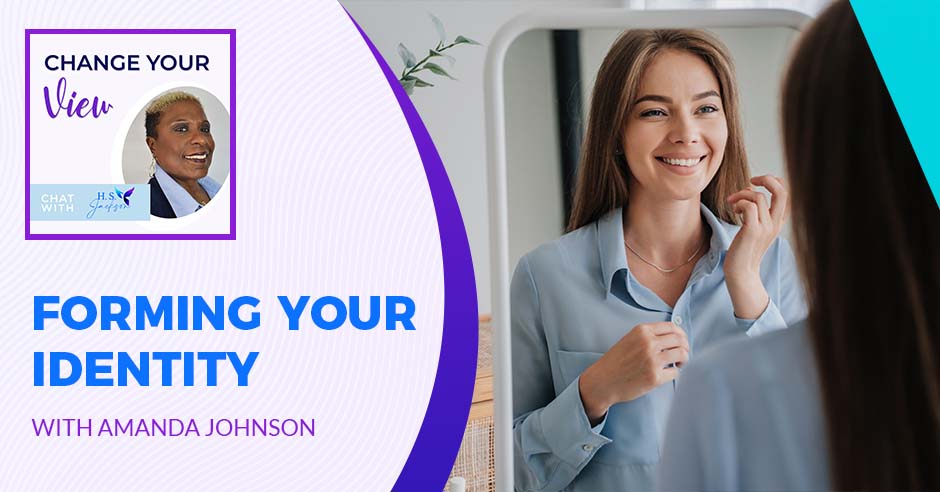
Dive into another episode of “Change Your View” as we introduce Amanda Johnson, the Story Oracle. Amanda, who helps individuals explore and define their identity through storytelling, shares her profound insights on the journey of self-discovery. Reflecting on her own experiences and the challenges of shaping her son’s identity, Amanda delves into the nuances of understanding oneself amidst societal and familial expectations. Tune in to hear Amanda’s compelling perspective on the importance of allowing personal journeys to unfold naturally, and how this can lead to a more authentic and empowered sense of self.
—
Watch the episode here
Listen to the podcast here
Forming Your Identity With Amanda Johnson
Welcome to another episode of the show. I have an interesting guest. I met her a couple of months ago, and we immediately had a connection. It’s Amanda Johnson. She is The Story Oracle. What is so amazing is that she helps individuals understand their identity in terms of letting them take their own journey through writing a story.
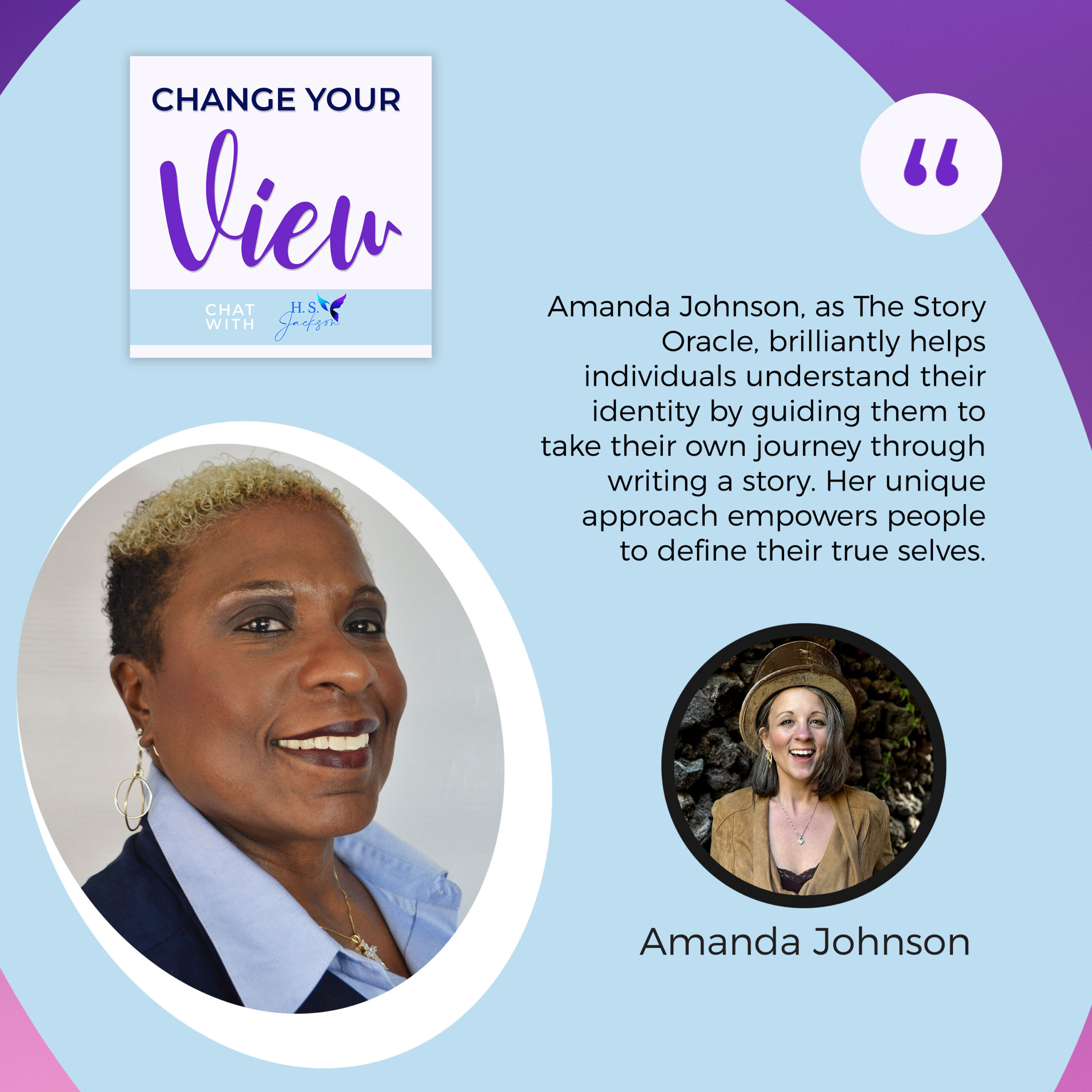
Amanda, let’s get right into it because I would like people to understand what it means. How do you define your own identity?
I love these deep conversations. I’m one of those people who go into regular social situations, and I’m like, “Can we talk about something real like identity, story, or something?” I’m always grateful for these conversations. As we’ve been talking and connecting over time, we’ve had a few conversations about identity and how I’ve been interacting with it through a story.
As most people, when you go from that ordinary world of the home that you grew up in, which has all of its cultural values and all of its possibly religious values, and then you move into the not-so-ordinary world, everything gets challenged. That identity that was formed and that perception of who we are in relationship to everything and everybody else gets challenged.
That’s how I would define identity. What is our self-perception and our role in relationship to whatever you call it? It may be God or the universe. I call it my co-author. Also, what is our self-perception and our role in relationship to the systems in which you find yourself, whether that’s a family system, a workplace, or an actual organization system? What is the identity that is thrust upon you that you find yourself having to live into, or what is the one that if you get the opportunity you would create for yourself? That’s where I usually find people in the process of trying to share their stories.
Our identity is shaped by our self-perception and our role in relation to the universe and the systems we find ourselves in. Share on XForming Your Own Identity
You’ve made an interesting point that I want to touch upon. A lot of times, we don’t allow ourselves to form our own identity. Instead, we want to be conformers. You shared an interesting story with me about your son. I know he has been co-author with you on a book, which is what I would like for you to talk about too, where you allowed him to take his own journey to find what religion meant to him.
I love that. I want you to share a little bit of that because you had your parents who really tried to intercede in some way, but you said, “Wait a minute.” I love it when he asked you a question about the Bible too. I want you to share that with me because a lot of times, we get stuck in that we have to follow the path of someone else when we should pave our own way.
Even before I shared that story with you, one of the things for me around identity is that it’s very rare to find a person who has shaped their own from the beginning. Our identity gets formed from the time that we’re born. In the family that we step into, the cultural values and the religious values shape who we are unconsciously.
It's rare to find someone who has shaped their own identity from the beginning. Share on XThe timeframe that I’ve heard is by seven, you’ve pretty much wired in some of your essential beliefs about the world around you and about whether it’s good or evil or safe or not. When we think in those terms, we’re raised to conform and to survive in a family system. We have to abide by the rules. Even if there is some part of us that goes, “Something is clearly not right here,” It might be something that they’re telling us is right or wrong, but sometimes, it’s something that is happening.
We go into the education system, and that’s also not set up to be, “Who do you want to be in this world?” You get those questions, but the way it’s executed is you sit at your desk, listen to the expert, and regurgitate what you’ve heard. That’s how you survive in that system and get the marks. You then get onto the next system where you have to do the same thing. Learn the game. Leverage the game as much as you can.
It’s rare for people to have a moment where something happens, which is the hero’s journey or an inciting incident. A tragedy happens or an adventure is offered. You think, “Something can change right now.” We all get those. Tragedies befall us. Opportunities cross our paths. Even if they’re small, we get these little moments where we could. If we don’t have someone with us who says, “Who do you want to be now?” then we continue being who we were before and learning the next game instead of, “What if I could create the rules of the game?”
This is why I love entrepreneurship. I did not plan to be an entrepreneur. I was going to be a journalist and work for a newspaper. I was going to be an educator and work for a system. I was not planning on being an entrepreneur. It happened to me. I realized the gift of it was that I didn’t have to deal with anyone else’s limits but mine. I could do anything I wanted. I could create it. The limits were mine.
The Importance Of Agency
We have to go back to the original question, but I want to piggyback on what you said. The experiences in our life, we have to determine how we will internalize them to add to our identity, or will we allow them to put us on a path where we have no ownership of our identity? The thing is we have that autonomous ability to determine who we can become based on the things that happen to us in society.
Our experiences don't control us. We have the power to decide how we internalize them and how they contribute to our identity. Share on XWhen you’re a child and you’re growing up, you don’t have the moments where you get to choose. I was having a conversation with my sister. I was raised as a Muslim. I was maybe 4 or 5 years old when my family converted to Islam, but my sister though was a teenager. She suffered because she was ridiculed. My parents took her out of public school to put her in the Islamic school where she did not excel the way that she could have because of the fact that it was something new and they were creating their own schooling system.
I don’t knock Islam in any way. I don’t want anybody to think that. My point of this is that parents can dictate what their children do to their own detriment. She was saying to me, “I lost a lot in my childhood because I had to follow the path of mom and dad instead of really being able to grow into the religion that I wanted.” Now, she’s a Christian like myself.
The point is that your children suffer or whoever suffers when you try to dictate who they should become, who they should follow, and what they should think and believe. You should give them that chance to have conversations like you did with your son to say, “What do you think? What do you believe in?” and let them go find those truths.
When you force truths down on another person, then what happens is that it starts to limit their thinking. They’ll look for someone else always to tell them what they should think and believe versus finding the answers themselves to what they should add in terms of their character. I want to go back to the thing about your son and how you allowed him to form his own. This example is a perfect example for people in all walks of life. It’s not just for children but anyone who needs to decide on what is the truth for them to add to their identity.
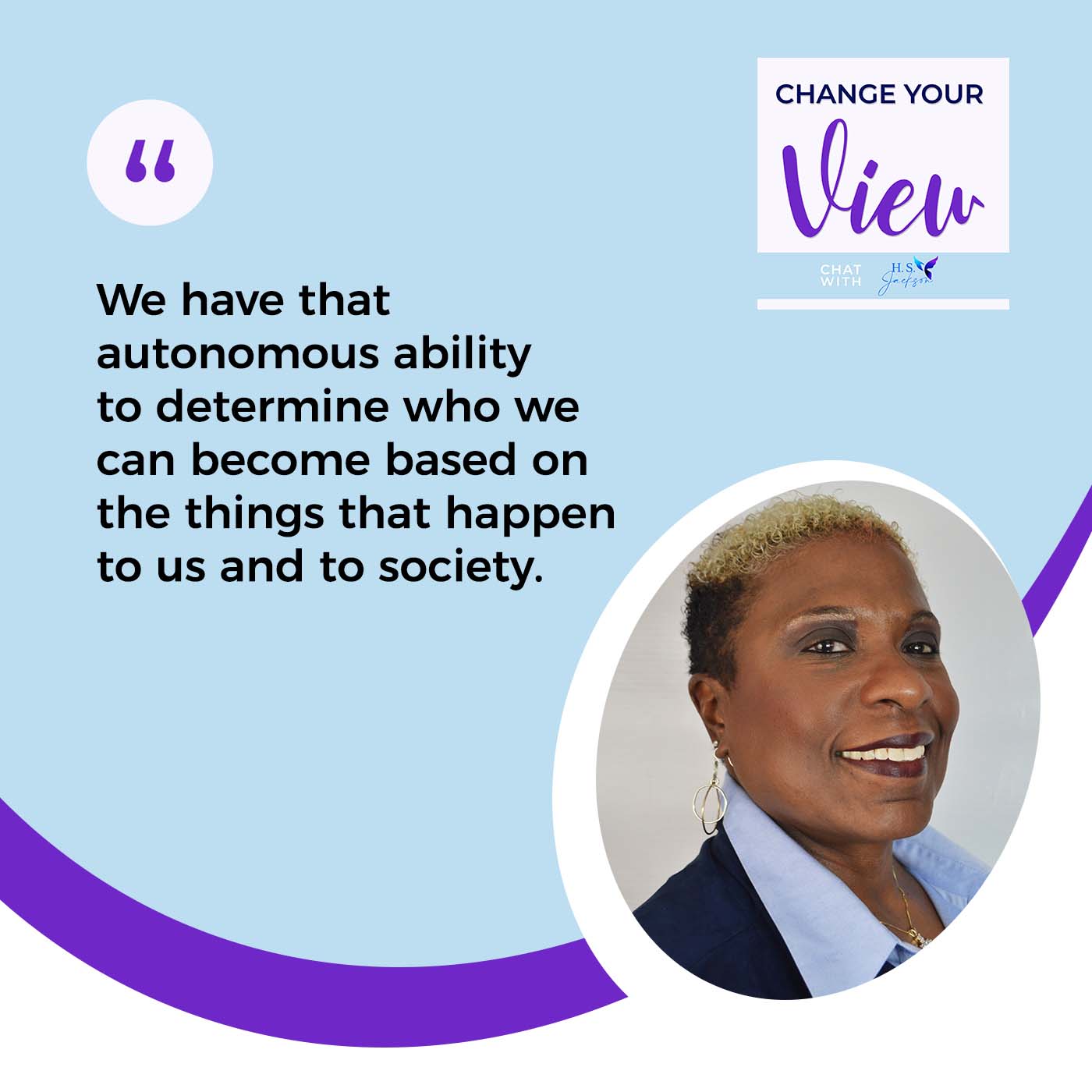
My relationship with my son was the beginning of me figuring out how to do this. When you’re raised in a system that dictates, it’s all you know how to do. You then get put in a position of authority, and how do you do anything different than what you’ve already always seen done? There I was, 23 years old, fresh out of an honors program where I learned everything about the Socratic method and story. I got my teaching credential. I have this little baby in front of me, and I have no religious structure under me anymore.
I had so many miracles that I witnessed throughout my teens, but I had been wrestling with this conversation about, “How much power does God have? How much power do we have?” Where I was raised, God takes care of everything. People would not live responsibly and end up in terrible places. I was like, “We should be doing more.” I went to the other side where I was like, “I’m going to figure this out. I’m going to do it.”
I’ve been in this wrestling match, and then here comes this little kid. I’m like, “How does one raise a happy, healthy human who’s responsible without a religious structure and the 10 Commandments or the moral dictates like, “This is what it means to be a good human.” I had enough child development, psychology, and curriculum development underneath me as an educated person that I could say, “I’m going to try this.” For me, every decision I made was an attempt to preserve his agency.
In every decision, preserve your agency. Define your own path and embrace your identity journey. Share on XWhat I knew was that at 23, my body was suffering. I could not connect to my emotions. My relationships were a mess. I couldn’t figure out what I was going to do with my life career-wise. I felt like a lot of this was because of what we’ve been talking about. Other people had decided what my life was going to look like. These weren’t malevolent people. They had all the best intentions. They wanted me to thrive and grow. They gave me the absolute best that they could see. The way that they gave it to me was that they gave it to me and assumed that would be my thing instead of saying, “What do you think about this?”
When Aaron came, I decided I was going to do it differently. I disrupted the system pretty significantly. I told my family and my husband’s family because they were all from a religious background, “We’ve been on a journey. It’s not like we don’t believe a lot of what you do, but I want this child to choose his path as it relates to deciding who God is and who he is in relationship to God and the world.”
I asked them, “Please do not sing songs that would get stuck in his head, read stories as if they were the absolute literal truth, or proselytize him or evangelize him in any way. Don’t share as it’s the truth until he asks you. When he asks you, share what you believe as if it’s not the only thing that anyone can ever believe.” These were tall orders for these folks. I realized that.
That’s because that requires humility in terms of that you have to say, “My perspective is not the only perspective. Also, be open and teachable.” We’re always teachable. For me, I’m always teachable until the day I die. You’re like, “You also have to be loving and empathetic.” If they had to be all those things to your son in order for him to take his journey, that was for him.
Why would they do that to a two-year-old? I was really asking them to do something that was so off their grid. He was about 2 or 3 years old when he came home from Nana’s house and was like, “Why don’t we have a Bible?” My fork drops on my plate because I’m like, “These people cannot follow my requests.” I’m over there trying not to throw a full tantrum in front of my kid and my husband interjects. He says, “We do have a Bible right now. Right now, our Bible is Avatar: The Last Airbender,” which was a Nickelodeon cartoon. We had a Bible in the house. It was part of practices and everything, but I wasn’t introducing it to him yet. In my book, he wasn’t ready for that.
My husband said, “It’s Avatar: The Last Airbender. That’s our sacred text right now.” I was like, “You are an absolute genius.” I had spent four and a half years in a classic books program wrestling with author intention, themes, ideas, stories, characters, and, “Why are these people writing this for this time? Why is it here? Why is it crossing our path right now?”
I began to get very intentional, which was great because I was physically and emotionally crippled in my early twenties. I did not have the energy like a healthy young mom to go to the park and run out of energy. I did not have the energy to clean up an art mess at the end of a project. Our life was very small because my capacity was so small. Story was the thing I could do. I was already falling asleep on the couch in all of my exhaustion while he was watching movies. I decided, “I’m going to use this.”
We started to use stories as a way to have conversations about the most important things in life, about what happens when uncertainty comes or when that inciting incident happens to a character. What does that look like? I remember one of the very first stories that we talked about in a religion of story is Finding Nemo. I remember watching that movie. Marlon, the dad, is so scared but Nemo is like, “I’m going to school.” I was like, “This is exactly where I’m at right now with Aaron.”
He, at three, had looked outside of our car one day, seen a bus, and said, “I’m ready for school, Mom.” I was like, “I am not ready for school yet. I’m not ready to let you go.” I understood Marlon, the dad, who was like, “It’s scary out there,” because all my stuff comes up. All my identity comes up. I’m not ready to put that on him and maybe keep him from school for a few more years because I don’t want him to experience the pain that I went through.
I did that instead of sitting with him in a movie and saying, “How could he have done this better? Clearly, it’s not a good idea to go so far away from your parent that you get kidnapped and taken on an adventure that you might not come back from, but what were some of the good qualities? If I behaved differently than that parent and I went with you on this journey, how could we take that adventure together?” It was always a constant invitation to talk about characters, what they were facing, and, “What would we do if we were them? How did we think that story was going to end?” Eventually, it became part of the soup that we lived in. It’s what we did together. We loved all of the stories.
The Impact Of Childhood Experiences
I love that. Let’s go back a little bit because you’ve hinted at it a couple of different times and I know someone might want to know. Tell me. What caused you to be such a mess? What was causing this downness that you were experiencing?
There were a few things, layers upon layers as it happens with the identity. The first layer was that things had happened in my childhood that were hard. Every time I tried to bring it up and address it, I was told, “You are too much.” They didn’t have the emotional capacity to sit with me in all of my fear, anger, and demands. I saw a letter. I must have written it when I was eight. I laid it out for my dad. I was like, “You need to stop. I’m tired of this and that.”
I remember reading it and thinking, “Where did this girl go?” She was a fire. She was amazing. There was a clue. After everything that I said, I would say, “I’m tired of this.” I would also say, “I’m sorry.” I felt like I always had to apologize for who I was. My feelings and responses to the world were clearly being a giant inconvenience to the adults around me.
I had really amazing parents doing their absolute best, working their butts off. To the world and even to me looking back, I had a great case scenario. There were no giant traumas, but there were enough of these little things that chipped away at me feeling like my voice mattered, my feelings mattered, and that it was okay for me to hold people accountable to a standard of treating me that I wanted. I realized early on, “I’m going to have to pretend not to be me here.”
I get what you’re saying. It’s interesting that you say that because I was having a conversation with a friend. His parents weren’t malicious when they did this, but they always told him, “You’re shy. You’re not outgoing.” Those words imprinted upon his mind. He came to believe that and it limited him. As he grew up to be an adult, all he wanted to do was go into the back room and fade into the woodwork because all he kept hearing was, “You’re shy. You’re not outgoing.” He took that as he should be invisible. He told this to his parents, but his parents did not mean that in a malicious way. They meant that in a way to try to maybe build him up.
We have to look at the words that we say to the people around us because what we’re saying in our minds appears to be one way. However, when you’re speaking into the mind of someone who maybe does not have that high self-esteem, especially as a child, then you’re programming them to think that those are the things that they are.
He had to grow up and really get his own identity to say, “I’m not shy. I’m not an introvert. I’m an extrovert. I like people. I like to have relationships.” He moved on to have a business where he’s dealing with people every day. The point of what you were saying is that your parents or anyone around you didn’t mean to put that on your mind, but they did because as you’re growing up, you’re forming your own identity. Telling someone that is adding to the person that they see when they look in the mirror.
You don’t know until you’re older usually that your parents were kids once too and they also went through things. Depending on what generation you live in, sometimes, they went through some really awful things. I didn’t know at the time all of the trauma that they were barely living on top of while they were trying to give me better until I went and hung out with my grandma. I was like, “This explains so much of what I experienced as a kid.”
It was already done. The impact was already made. I already had an identity that I needed to rewrite. I needed to own in a way, “This is the backstory. What’s this character going to end up doing? Who are they going to end up being at the end of this story? They can’t use the same scripts, behaviors, and approaches that the last generation did because it’s going to create more of this.”
I was a high performer from the time I was young. In school, I was such a good student. I got praised like, “Look at your big sister. She’s knocking it out of the park.” I was elevated for my performance, which was fantastic. I would have these moments where I would be not performing or not feeling like I could perform or those sorts of things and I wasn’t getting the type of attention that would help me move back to that. What I ended up learning was my performance was tied to my worthiness of time, attention, and praise. I learned these essential things about worth that got me into a lot of trouble.
I high-performed myself into some severe adrenal burnout and fibromyalgia in my early twenties. That was one of those things that I was like, “I’m going to change this for Aaron. I’m going to figure out how to disconnect this worth and responsibility and worth and performance thing.” I would say to him the words. The words were important. That’s why it was always about the words with the adults in his life.
Everyone knew that it was a cardinal sin to call my son a bad boy. I promised consequences. I didn’t know what they would be because that mama tiger is like, “I don’t know what I’m about to do at this moment but I’m about to do something crazy because I know the damage that you did by calling him bad instead of saying, “I don’t think that was a great choice. Amazing human, I see you trying to get something. This thing that you’re doing over here to get it is not the way to go about this. Let me show you how.”
It’s the words that you speak. That’s what he’s going to think. He’s going to think, “I’m a bad boy.” How did he decide upon his religion? Let’s go to that. He asked about the Bible. You started doing the stories with him. What was the turning point for him?
We talked about it all the time. We watched different stories with different religious contexts. I remember one time when I was starting to get a hint because it would come up, but it was not necessarily like, “What do you believe about this?” I would never push him. I wanted to wait until he was ready to say something that would be like an invitation because, to me, it’s the most important thing to decide.
I remember we were watching a show called God Friended Me. Do you remember that? It was such a good show. It was super cheesy in its execution, writing, and acting sometimes, but the point of the show was so cool. It’s this young man who kept getting friend requests on Facebook. He eventually realized that God was setting him up with people so that he could help them or they could help him.
It was using modern technology to talk about something that I see in my story and every story I work on constantly, which is people show up at the right time, the mentors, the allies, and the resources. It was a really cool show about that. I remember that we finished one night and it was a moving episode. He said, “Do you know what is so great about this show? It’s so cheesy.” He must have been 15 or 16. This was my first clue it was happening. He was like, “This is based on the idea that life is happening for you, not to you. “
That is a long pause because that’s what people need to understand.
We watched plenty of stories. We had been through plenty of stories. We had a grandma with dementia that we navigated caregiving with. This child’s life was not silver spoon anything. It was hard. Still, at fifteen, after all of that, he would say, “This is the better way of looking at life, as if it’s all happening for you and not to you” He understood that even the lens of that would change somebody’s life. That was the first thing of, “If that’s happening for you, not to you, then who’s working in charge of that? Who’s creating those opportunities? Who’s orchestrating?” In the background, I’m doing what I promised.
Life is happening for you, not to you. Even the hard stuff can be seen as an opportunity for growth. Share on XHere’s what I promised. I walked out of the church. I was fighting with people. I burned some bridges because I was wrestling out doctrine. I was like, “If this is true, then this can’t be true.” It was not pretty. I remember this one moment in my early twenties when I was talking to one of my parents. I remember I was debating and I had this moment of clarity that was like, “I’m done arguing about this. I am going to live my life as if this new idea that I’m having is true. I’m going to prove these people wrong with my life. I’m going to prove to them that this belief system that they have, not necessarily the whole doctrine, but this belief that I’m arguing with them about, if that got shifted to this and more true, life would get better.” I stopped all of the arguing.
I don’t argue doctrine, religion, or beliefs anymore. I started asking myself, “What would love do right now? What would this look like? What would truth do right now in this situation? How would love raise a child interact at this point in a marriage that’s going through some hard times?” I never did it perfectly, but that was my guiding light. It ended up creating a life that was happening for me and not to me.
It shifted that enough for me that I was coming home from work and telling my husband, “You will not believe the story that I heard today. You won’t believe how this showed up in her life. Isn’t that amazing?” My son is overhearing all of those stories. I come home and share, “This is what’s happening to me. It’s almost like that lady’s story.” My identity was expanding as I was interacting with other people who were a little bit further ahead than me in certain ways and pulling me forward. It was pulling him forward because I was sharing it. He was able to not just articulate that but understand in reality that that was a better way to live.
Eventually, we had conversations. Almost everything about this young man is Christian, like how I grew up. When I told them that I was not raising him with the Bible, they gave me their two cents about how that was going to go. They were like, “You know what happens if you don’t raise them right. They don’t come back.” They give the, “Train a child in the way he should go and he will not depart from it.” I remember thinking, “Everyone that I saw trained up on that departed from it.”
You had an antagonistic attitude at the onset. You said a couple of things that I really want to go back to because it was very interesting. It appeared to me that as he was forming his own identity, yours was evolving as well.
100%. That was my agreement with him when he got here. It was like, “I don’t know what I’m doing, so we’re going to have to figure this out together.”
That’s an interesting point that I want to go back to because a lot of times, you hear people say, “I’m there. I’ve evolved. I’ve arrived.” You don’t truly arrive because you’re continuing to grow and transform as new experiences, new environments, people, and connections that you make are adding to the person that you truly are to become.
I love it when he said it’s for. The for is helping you to continue to move ahead. Our physical bodies and our mental state over time will deteriorate as we get older, but what will stay strong is that connection and relationship that we have with the Father who created us. And that’s where you continue to grow and become well in Him.
I have a friend who says, “You become well in Him because the things in life, the materialistic things, those things and your health are going to fade away but that connection will stay there forever if you nurture it along the way.” That’s what your son is doing, and that’s what you have shown him how to do, how he can nurture that on his own.
Was it at the burning bush when Moses was there and God said, “I am?” It was like, “That’s it. I am.” Fill in the blank afterward, but I am. Anything that tries to put God in a box and define it is always going to fall short because it’s always only going to define one part of it. Why not cultivate a mindset, a lens, or a way of living, moving, and breathing through the world that’s like, “How is God going to show up today? Is it going to be in a new connection with an amazing human who’s up to similar work love? Is it going to be an inspiration for another project, book, or offering in my business?”
It has us always open instead of, “I have my system clearly defined. I know the parameters that are safe and I’m not going outside of that because I don’t know how to exist outside of that.” That’s a closed identity that ends up disintegrating because there’s nothing calling it out to grow and learn that not only is God more than we could ever imagine. We are too. We’re made in that image. We are called to be so much more than we can even imagine possible. If we have that sense of identity of, “I’m always going to be figuring out so much more of how God wants to show up in our lives and is and we don’t even notice it.”
Identity Opportunities
I would like to term it identity opportunities.
I like it.
That’s what it is. It’s identity opportunities.
I’ve had really long, hard conversations with people about my first run through, the education system. It was in a room full of young people where all the cards were stacked against them on race and economics. In every single structure that you can imagine, there were cards stacked against them. I remember thinking, “What if they could see themselves as able to graduate high school? They could graduate high school and then maybe be able to see themselves as possibly being able to go to college, get a good job, maybe even do better than their parents did,” or whatever that conversation was. They could not believe it.
I would pass out these little notes that were like, “You did such a phenomenal job yesterday. I can tell you are so smart.” There were 15 to 18-year-old people in this classroom. I hand one of them out. I’m handing them out and their names are on it and their notes. This girl looks up at me and she breaks. She starts bawling her eyes out. I’m like, “What did I write? What were the words? I’m usually so careful.” She goes, “No one has ever called me smart before.”
Identity possibility. I was like, “You’re smart.” I was the person in front of the room who had been given some sort of authority. I don’t know why I didn’t feel like I knew what I was doing in that room. I’m a person who has a little bit of influence saying, “I see that you are this even though you can’t.” I don’t know what ended up happening to her because I was at the end of a school year. I hope that was a little seed that when she found herself in a situation where she wondered if she was smart enough, she would contend with it that she would try.
That’s 1 of the 3 pillars of my coaching business. They are three B’s. Believe in what you told that young girl, which is, “You’re smart.” All she had to do was believe in that, and then Become. She could be maybe a scientist, doctor, lawyer, or whatever she wanted to be, but she could become. The third B is Belonging. Belong to a community that is empowering and uplifting. That is what I practice in my coaching, my motivation, my speeches, and everything. It’s about how I can impart those three Bs to the person so that when they leave my presence, they then have a plan in place to apply those three Bs.
I love it. That’s very empowering.
Finding Power In Small Moments
I think about the storytelling. As you tell a story, it helps that person visualize and release things that don’t serve them while embracing the things that help them, right?
100%. When you’re talking about Belonging, one of the most profoundly beautiful experiences that I get to have regularly is being in a community of belonging, being in a space with people who agree to be safe for each other to disclose some of the hardest things that some of them have not disclosed to a single other soul before this space. I have that opportunity to not just witness someone liberate themselves from the silence but to watch the liberation that ripples around the room when they see that happen. I told my story, but I left this part out. On the next turnaround, guess what comes out? A little bit more. It creates this space of seeing who a person really is and everything that shapes them.
I don’t think that we can reshape or rewrite an identity without being really honest and truthful about what shaped us to begin with. It’s not just what shaped us but oftentimes our part in it. When we were kids, what could we really do? I could have tantrumed a little bit more. I could have rebelled a little bit. Up to a certain point, there is culpability. There is an imbalance there. At some point, it’s like, “I started doing this to myself. I started putting myself in these tough situations. I didn’t know any better. I didn’t have any better models.” It’s all the reasons.
When someone gets to look at their entire story and what shaped their identity, they get to see everything that happened to them, everything that they did to themselves, and all of the grace that happened in between to pull the story forward to help them survive and get to the point where they could be in a room full of safe people, start to look at that identity, and begin to heal it.
That’s powerful. We have to be willing to be vulnerable and authentic. The thing is that’s what you do with your son and that’s what you’re doing in your business. That really has become your passion, the storytelling and helping others to be authentic and vulnerable to form and evolve. That’s what we have to understand in life.
It is what you said at the beginning of our talk. We don’t have choices in the beginning, but as we get older, we do have a choice. You have to take control and responsibility. Otherwise, you’ll continue to drift along in your life, never reaching that place of fulfillment and wellness to maximize being that person that you can be in truth in your spirit, mind, and body. That’s what’s so important. How can we help people get to that place? How do you need to be open to know that you can get to that place? Don’t settle in life.
Sometimes, it’s like a sliver of a moment in a day where you can see something. I’ve worked with high-performing professionals in so many different domains. I can’t tell you the number of times when we’ll look at a day in their life or what the current story is and we’ll talk it through and they feel powerless at every single juncture.
The first goal is where do you have a moment where you could pretend to have some power? Some of us have set ourselves up into work situations or relationship situations that are very disempowering. In order to change that, it’s not something that is fast, “I have so much power.” You do, but sometimes, that power is running to the bathroom at the workplace and doing a quick little mindfulness something to regulate yourself so that you don’t get caught up in the rest of that loop for the rest of the day. Maybe that’s enough to start to shift so that when you go back, you can see things or you can feel calmer and respond better.
Sometimes, we do these art projects, looking at the day in their life. It was trying to talk us through her day. There was this giant black crayon or black hole in the middle of her day. I was like, “What is that? She was like, “I don’t know what that is.” She talks me through and says, “This must be my job.” Sometimes, we don’t even know the thing that is suppressing us or oppressing us so much that we feel like we can’t liberate ourselves. We need a space with safe people to look at it and say, “Can someone sit here with me while I look at this and try to see something that I haven’t been able to see before?”
That is so true. I went to run an errand. I was on the phone talking with some people and then I got an email that I didn’t really care for. I got a little bit unsettled. I really had an attitude. I was like, “I can’t believe this,” in my own mind. I said, “Are you going to let this email get to you for the rest of the day?” I was still driving thinking about it.
I went to Walgreens and I was parking in the lot. All of a sudden, I heard this bump. This car had hit another car that was parked in the lot. I said, “You could be that person over there. That’s a bad moment that you’re not going to be able to get over. That little email message that you saw was trivial. You need to move on.” Sometimes, you have to laugh. It wasn’t comical.
It’s a different angle. I’ve been watching a lot of comedians. That’s one of the things with comedians that they do so beautifully. They take a really hard moment and shift their perception of it enough to be like, “Isn’t that the dumbest thing you ever thought?” We do this every day. Isn’t that a crazy thing? While we’re doing it, we think it’s the most important thing, but the person who looks at it a little bit differently and with a little comedic angle can completely shift that story rather quickly.
After that, I said, “What you have is not insurmountable. It doesn’t make your whole day. Move on.” That’s what we have to understand. That’s what we’re talking about. How can we not allow our experiences to control us but instead take them in and allow them to be part of our identity and help us live in our true person or our true self in finding that place? Is there one parting thought you’d like to leave us with?
Look for the things that are happening for you. For a day, train your eyes on, “What’s happening? How could this possibly be happening for me to move me forward into a better chapter?”
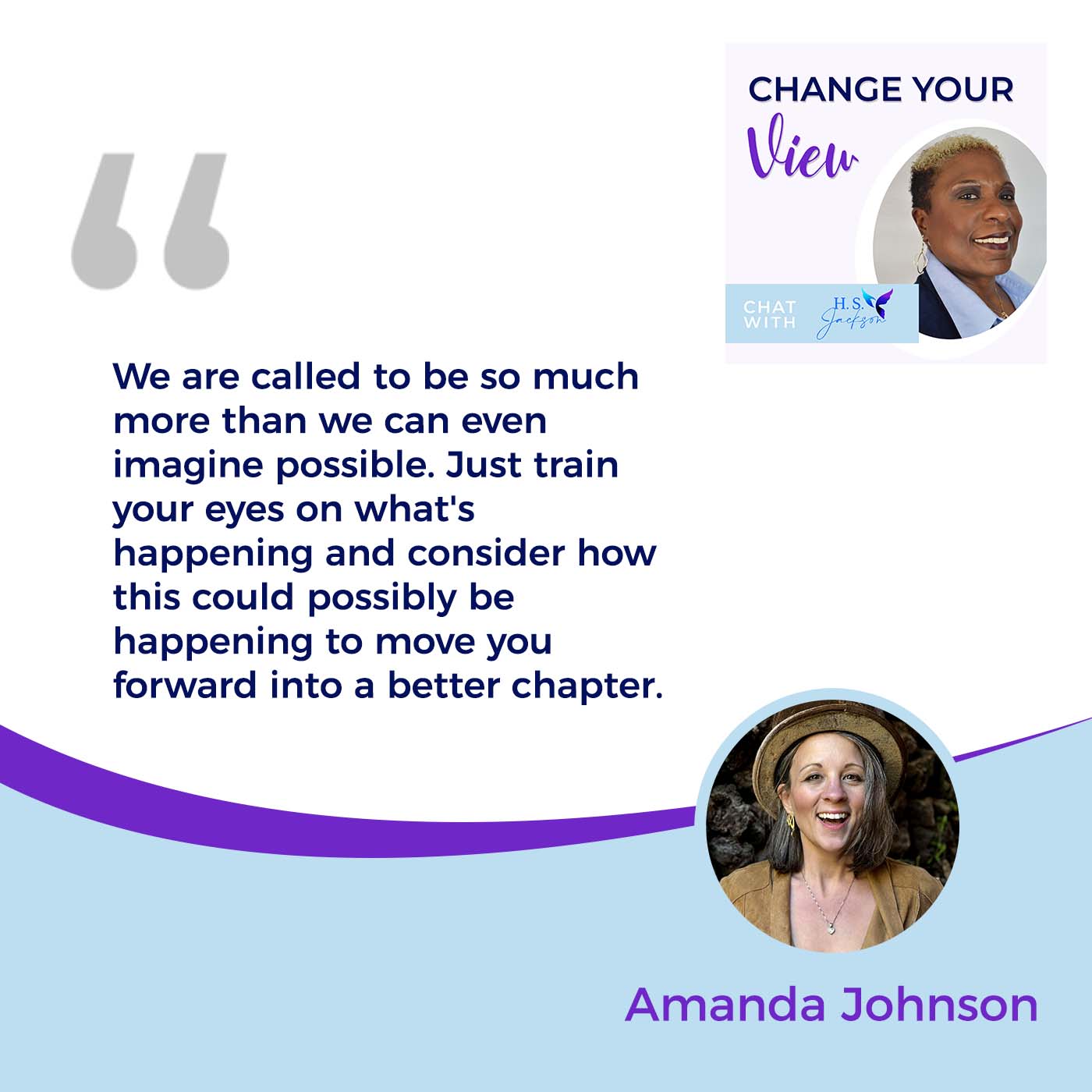
I love that because it says that all things happen for your good and even the bad. If you cannot even take the bad situations and turn them around to see that it’s for the good and for your life, then you really are going to miss out on those true nuggets that will help you form into that person that you truly need to be to live your life to the fullest. Thank you for being with me.
Thanks for the conversation. I love these conversations. I’ll take this over a little superficial chit-chat anytime.
I’m with you. We could talk all day long. We will be talking again soon. Thank you for reading this episode of the show. We’ll see you in a future episode.
Important Links
About Amanda Johnson
 After twenty years of facilitating transformative experiences through story literacy, writing, and narrative medicine, Amanda Johnson is determined to empower a generation that challenges disempowering narratives with curiosity and love, heals the st*ries that hold us back, and co-authors a magically-ever-after.
After twenty years of facilitating transformative experiences through story literacy, writing, and narrative medicine, Amanda Johnson is determined to empower a generation that challenges disempowering narratives with curiosity and love, heals the st*ries that hold us back, and co-authors a magically-ever-after.
As a Speaker, Facilitator, Storyteller, Strategist, Guide, and Ally through The Story Oracle and Saved By Story, she partners with emerging leaders (of all ages and titles) to become uncompromising agents of change in their families, communities, and industries.
With her partners at Saved By Story, she midwifes paradigm-changing brands, content, and more whole thought leaders and storytellers into the world with st*ry-saving quests and message-manifesting retreats. From inspiration to impact, she and her team help inspired souls dissolve the lies, reorganize their sacred material, and become truer to intention with every piece of content they craft, love offering they launch, and system they develop to change the world.
